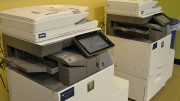Jetonne Ellis
Staff Reporter
The Information Technology Department is seeking to raise awareness on campus about malware, a technological nightmare for all computer users.
Malware can hide itself on your hard drive in such a way that attempting to erase and reinstall everything [from scratch] doesn’t get rid of it, send your information to others over the Internet, and slow down your computer’s performance drastically.
“Malware is really coming of age. Malware is moving fast-globally. The damage that is being done now is worse than ever before,” says Chief Information Officer for Information Technology, Dr. Esther Iglich.
“Malware, short for malicious software, is software designed to infiltrate a computer system without the owner’s informed consent” (Wikipedia). It includes viruses and spyware that range from benign to destructive.
According to Marylin Bell, I.T. Help Desk Manager, “Malware can appear in the form of tracking cookies which web sites can use to keep track of what sites you visit and what you do on those websites…items can be as destructive as a root-kit which allows someone else to access your computer remotely… as if they were sitting in front of it.”
Malware can even insert itself into your computer via connections to legitimate sites.
The best defenses against malware are to keep up with your Microsoft Windows updates and to invest in up-to-date anti-malware software and anti-virus software that is of good quality. You may be able to buy these programs in a combined package but be aware that they serve two completely different purposes. Make sure that you don’t run more than one of each kind at the same time, especially the anti-virus programs. They can conflict with each other and lead to more problems.
A good anti-malware program that is used on the McDaniel campus is called SUPERAntiSpyware. If you use Firefox as your primary web browser, the AdBlock Plus extension, will block most of the advertisements that appear on web pages.
According to Bell, “Almost all of the malware out there is targeted at Microsoft Windows computers. It could change, so don’t get complacent. [At the moment] Mac users are at a very low risk for malware.”
Almost 100% of the computers on campus have been infected with malware, if you include benign tracking cookies. However, if you consider malware to only be software that is harmful, the number is estimated to be between 1/3- 1/4 of [unprotected] computers.
Bell says, “The message of these destructive ‘bots’ is ‘if I can’t have your computer, you can’t either.’”


